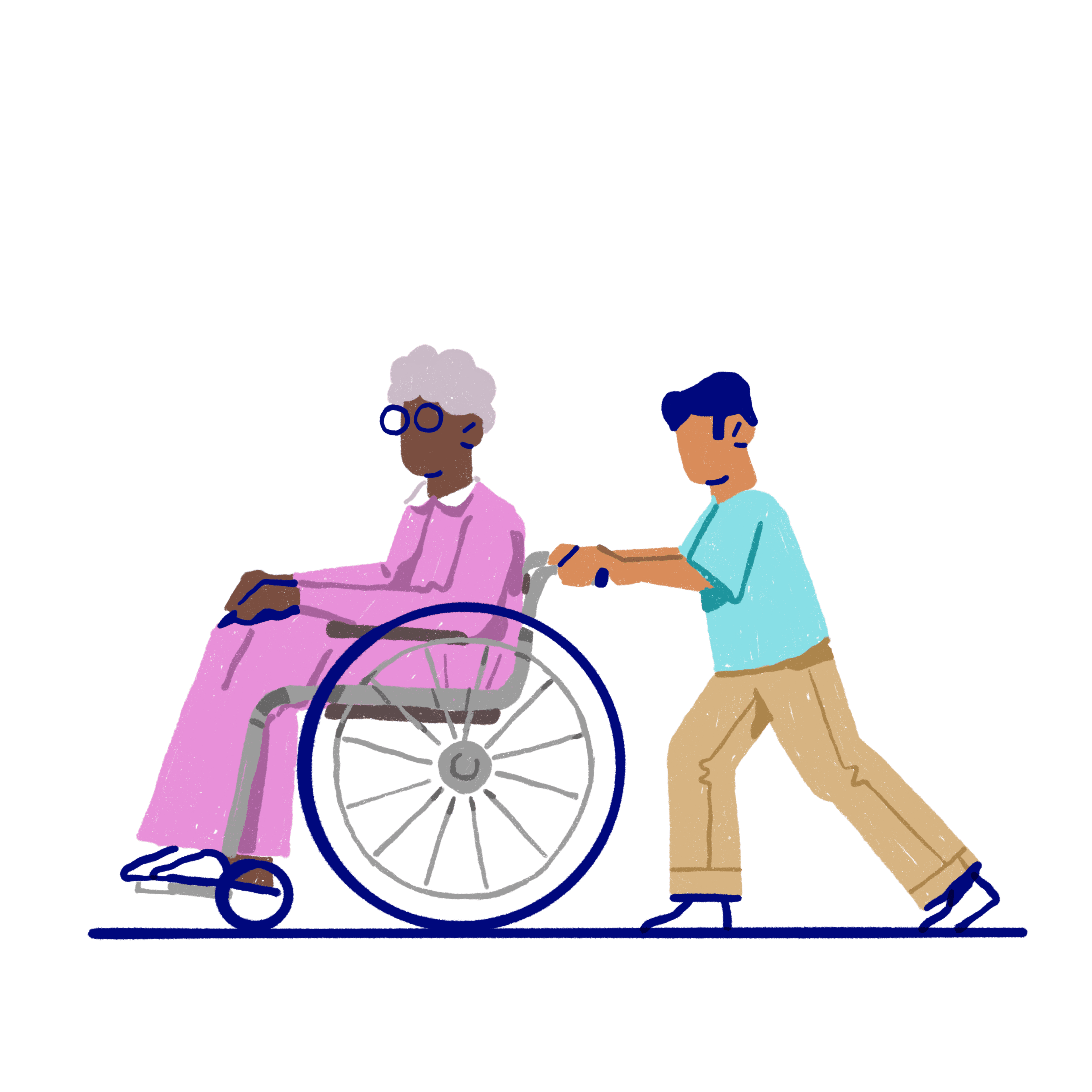Looking after – or helping to look after – someone in your family who can’t care for themselves can be extremely challenging. You might be anxious about their health or stressed about the household bills. You might feel tired as you’re not getting enough sleep or frustrated if your caring responsibilities are disrupting your school work or social life. And you might not know how to get the practical and emotional support you need.
According to research by Carers Trust, more than a third of young carers (38%) report having a mental health concern. If you’re a young carer, it’s really important that you look after yourself as well as the person you care for. London’s digital mental wellbeing service, Good Thinking, has put together the following advice for you. We also provide free NHS-approved wellbeing apps, such as Clear Fear and Move Mood, which you might find helpful.
1. Stay connected
With your responsibilities as a young carer, it’s understandable that you worry about your family. Sometimes, this can lead to stress, low mood and sleeping problems. So, if you’re starting to feel this way or have done for some time, talk to someone you trust, like a friend, sibling or teacher. Don’t bottle things up.
If you’d rather speak to someone you don’t know, The Mix runs a free helpline for under-25s on 0808 808 4994 or you can chat to their team online. You could also find out if there are any support schemes for young carers in your borough (check your council’s website).
2. Make a plan
As a young carer, you should have an emergency plan in place in case you get ill and can’t look after your relative for a while. In this situation, replacement care can be sorted out for you. Having this kind of plan in place should give you some peace of mind.
Your plan should include contact details for other family members and friends, information about your relative’s GP and pharmacy, details of any medication they take, information about any care and support services they receive and details of any mobility or behavioural challenges. Give some trusted relatives and friends a copy of this plan.
Carers UK provides lots more useful advice about writing an emergency plan.
3. Ask for help
Your local authority can provide support – if you have a social worker or you’re in touch with your local young carers service, contact them. You could also talk to one of your teachers or a school counsellor or call Carers UK on 0808 808 7777 for advice.
Good Thinking can recommend free NHS-approved wellbeing apps to reduce anxiety, lower stress, improve sleep and boost mood. If you think you would find this useful, visit our apps page.
Contact your GP if you’re worried about your own health or the health of the person you’re looking after. Call NHS 111 for urgent medical help or 999 for life-threatening emergencies.
4. Look after yourself
When you’re caring for someone else, it’s easy to forget about looking after yourself. Try to eat healthily, stay hydrated and exercise regularly. You’ll find lots of inspiration on the NHS Live Well website, Sport England website and in Good Thinking’s advice about how to maintain a healthy, balanced diet.
Make sure you get enough sleep too. Switch off your phone and other devices in the evening so you can unwind before you go to bed. Read Good Thinking’s advice about sleeping better.
Good Thinking resources
- Advice for children and young people
- 'Five ways to wellbeing' posters for children and young people
- Free NHS-approved wellbeing apps for young people












